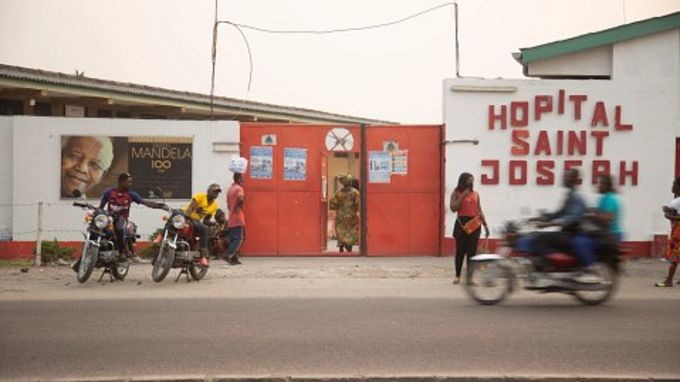The need for effective COVID-19 treatments remains particularly acute, especially in sub-Saharan Africa where access to vaccines is still extremely limited. The ANTICOV clinical trial, which is consortia led by DNDi with partners including Swiss TPH, has started the recruitment of participants to test a new promising drug combination, fluoxetine and budesonide, as an early treatment for people affected with mild-to-moderate COVID-19.

‘We urgently need to identify an oral COVID-19 treatment that is safe, affordable, accessible and adapted to the specific needs of low- and middle-income countries (LMICs)’ said Strub-Wourgaft, DNDi
The ANTICOV trial, currently conducted in 13 African countries and soon expanding to additional countries in South Asia and Latin America, aims to identify COVID-19 treatments that are optimized for use in resource-limited settings and can prevent progression to severe disease and potentially limit transmission.
“We urgently need to identify an oral COVID-19 treatment that is safe, affordable, accessible and adapted to the specific needs of low- and middle-income countries (LMICs)”, said Nathalie Strub-Wourgaft, Director of the COVID-19 Response for the Drugs for Neglected Diseases initiative (DNDi).
COVID-19 antivirals recently approved for use in the United States, the European Union, India, and other countries show some promise on preventing disease progression when administered to high-risk patients in the first five days of symptoms. Yet concerns are growing whether these antivirals will be immediately available to everyone who needs them, especially in regions where access to vaccines remains unacceptably low.
A new, promising drug combination
The new drug combination tested by ANTICOV includes fluoxetine, better known under its brand name Prozac. Fluoxetine’s potential for COVID is based on a mechanism of action that is totally separated from its anti-depressant properties: it inhibits the ability of the virus to replicate by preventing viral entry into cells and could also carry immunosuppressive activity. It is safe and widely available.
“At Swiss TPH, our role will be to continually support safety in the study through monitoring, co-monitoring and training,” said Elisabeth Reus, Head of Clinical Operations unit at Swiss TPH. “By testing this new drug combination, we hope alternative evidence-based treatment options can be found and made available."
Fluoxetine will be tested in combination with inhaled budesonide, a safe and affordable inhaled corticosteroid known to have potent anti-inflammatory efficacy in the lungs. Studies have shown that budesonide, if taken in an early stage of the infection, improves recovery time in outpatients with COVID and may reduce hospitalizations and deaths.
‘For outpatients presenting for treatment within a week of symptom onset, which corresponds to the reality on the ground, oral drugs combinations that are adding two different mechanisms of action - an antiviral and an anti-inflammatory - are the most promising options,’ said Dr. Strub-Wourgaft. ‘Such a treatment will be particularly adapted to limited-resource settings where affordable testing tools are often difficult to access.’
Fluoxetine and budesonide are commercially available and will be affordable and easy to access and administer, if shown to be effective against COVID-19. This is the fifth arm tested by the ANTICOV trial since its launch in November 2020.
ANTICOV is an ‘adaptive platform’ trial, a flexible and innovative trial design that allows for treatments to be added or removed as new evidence emerges. The selection of drugs for ANTICOV is informed by reviews conducted by the expert working group Access to COVID-19 Tools Accelerator (ACT-A) Therapeutics Partnership.
About the consortium
Major funding for the ANTICOV consortium is provided by the German Federal Ministry of Education and Research (BMBF) through KfW and by the global health agency Unitaid as part of ACT-A. Additional support comes from the European & Developing Countries Clinical Trials Partnership (EDCTP) – under its second programme supported by the European Union with additional funding from the Swedish government – the Starr International Foundation and the Stavros Niarchos Foundation (SNF).
